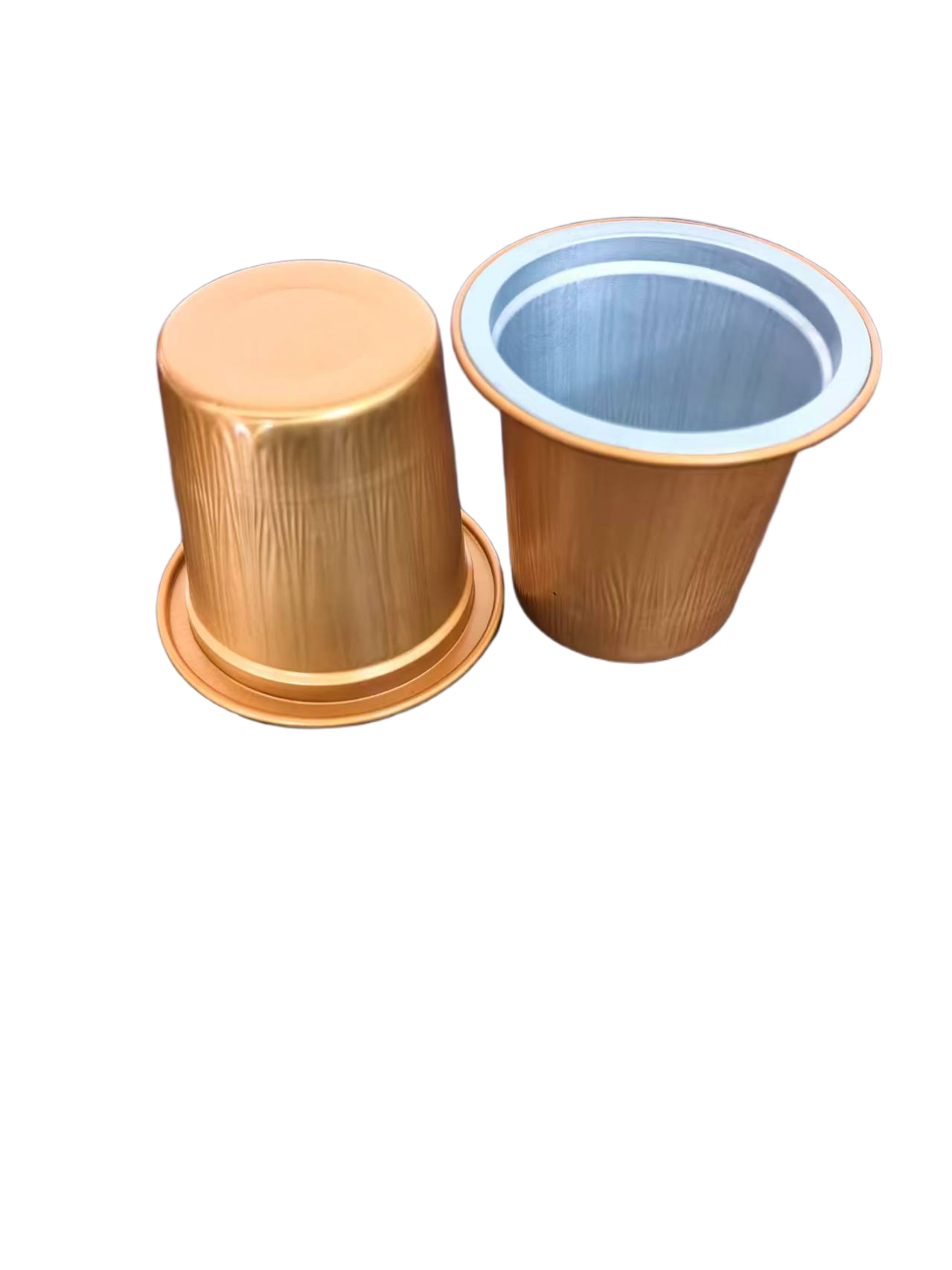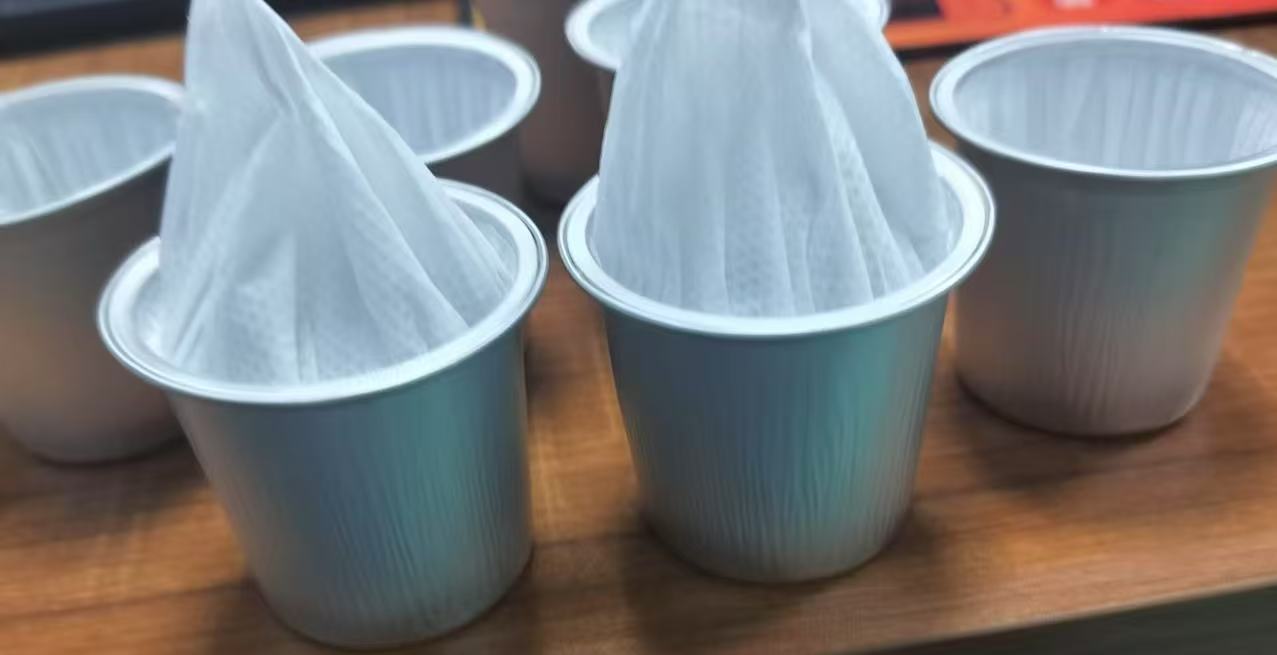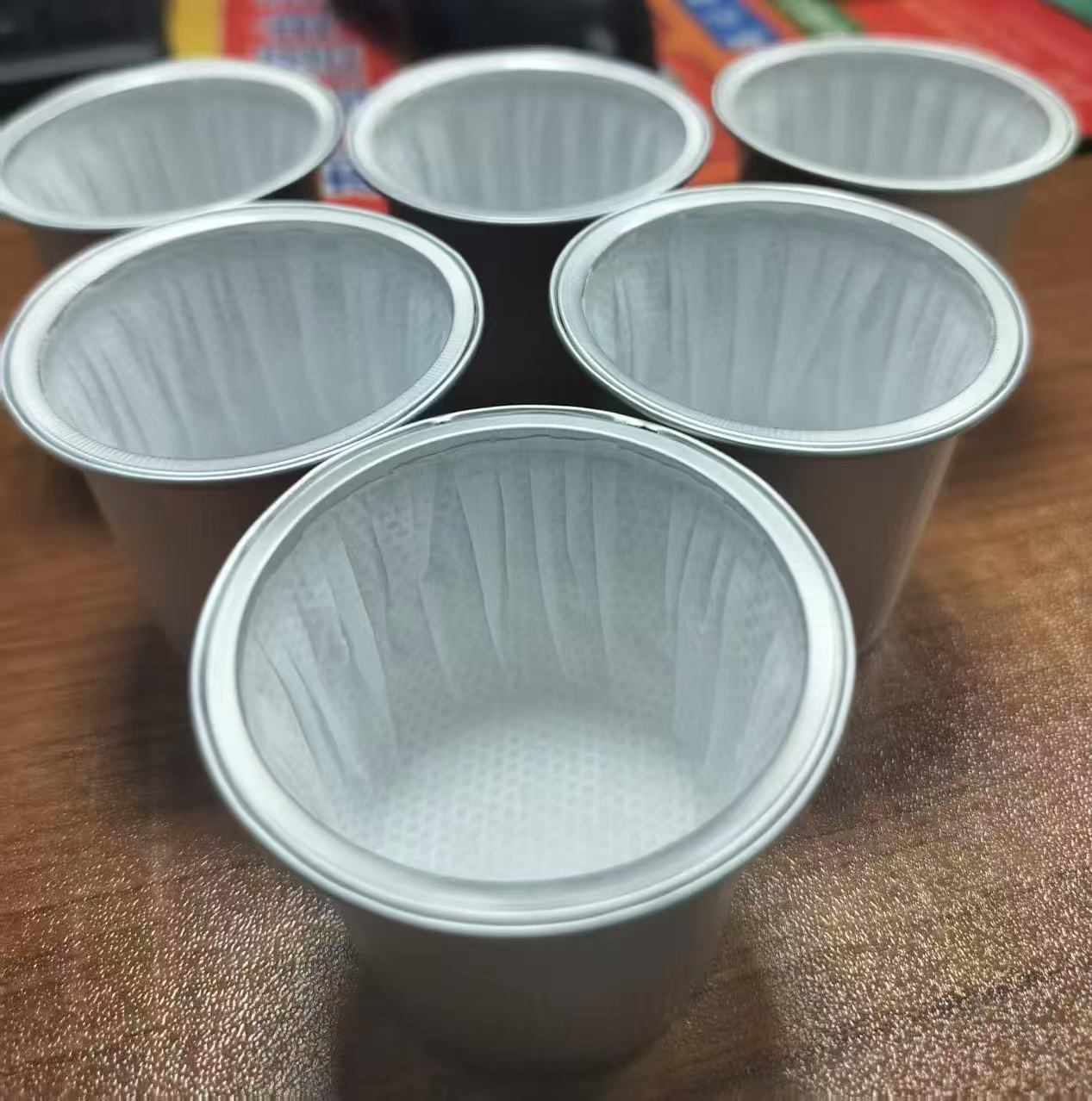With the popularity of coffee culture, more and more people choose to use K-cup coffee machines to make coffee. K-cup coffee capsules have been widely used as a convenient way to consume coffee. Common K-cup coffee capsules on the market are made of aluminum and plastic, and they have their own advantages and disadvantages in different aspects. So, what is the difference between aluminum K-cup coffee capsules and plastic capsules? This article will make a detailed comparison from multiple angles to help consumers make a more informed choice. 1. Material properties
The most significant difference between aluminum K-cup coffee capsules and plastic capsules is the nature of the material.
K-cup aluminum capsules
Aluminum capsules are usually made of high-quality aluminum alloys with strong heat resistance and moisture resistance. Aluminum alloys can effectively isolate air, ensure that coffee powder remains fresh, and are not easily affected by the external environment during storage. Due to the good sealing of aluminum, the coffee powder in the coffee capsule is not easily oxidized and can maintain the aroma and flavor of the coffee. Plastic capsules
Plastic capsules generally use food-grade plastics such as polypropylene (PP) or polyethylene terephthalate (PET). These plastic materials are slightly inferior to aluminum in terms of sealing and heat resistance. Although the sealing of modern plastic capsules has been improved, they are still susceptible to air and moisture, which may cause the loss of coffee flavor.
2. Coffee flavor
The preservation of coffee flavor is an important criterion for most consumers to choose capsule coffee.
Aluminum capsules
Due to the better sealing of aluminum capsules, it can better maintain the aroma and freshness of coffee. Aluminum has excellent anti-oxidation function, which can effectively isolate oxygen and reduce the exposure of coffee powder to the air, thereby preserving the flavor of coffee to the greatest extent. For consumers who like rich and delicate coffee taste, aluminum capsules are undoubtedly a better choice.
Plastic capsules
Plastic capsules have relatively weak sealing. Although some brands use multi-layer design to enhance their moisture-proof and sealing effects, plastic capsules are more susceptible to oxidation than aluminum capsules, which may cause the coffee aroma to gradually weaken. In addition, the plastic material itself may also affect the flavor of coffee, especially when heated at high temperatures, some plastic capsules may produce a slight odor.
3. Environmental protection
With the improvement of environmental awareness, many consumers consider the impact of K-cup coffee capsules on the environment when choosing them.
Aluminum capsules
Aluminum capsules are generally considered to have certain advantages in environmental protection due to the recyclability of their materials. Aluminum alloy itself is a recyclable material that can be reused after recycling. Therefore, under the correct recycling system, the negative impact of aluminum capsules on the environment is relatively small.
However, the recycling process of aluminum capsules may be relatively complicated, especially in places where there is a lack of a complete recycling system. Consumers need to clean the capsules and sort them correctly, otherwise the recycling effect of aluminum capsules may be greatly reduced.
Plastic capsules
Plastic capsules are relatively difficult to recycle, especially single-layer plastic capsules, which are usually not easy to be effectively recycled. In addition, some plastic capsules may release harmful substances during the recycling process, which puts certain pressure on the environment. However, in recent years, some brands have begun to use recyclable plastics or launch biodegradable plastic capsules, which also has a certain positive effect on environmental protection.
 4. Price comparison
4. Price comparison
Aluminum capsules
The production cost of aluminum capsules is higher, so the price is usually slightly more expensive than plastic capsules. Although aluminum capsules are more expensive, many consumers consider them to be worth the money due to their better flavor preservation performance.
Plastic capsules
Plastic capsules are less expensive to produce, so they are relatively cheap in the market. For consumers with limited budgets, plastic capsules may be a more attractive option.
5. Ease of use
Aluminum capsules
Aluminum capsules usually require consumers to handle them in advance, such as cleaning the residual coffee powder inside the capsules or recycling the capsules appropriately. In addition, some high-end aluminum capsules may increase the wear and tear of the machine, so after long-term use, more maintenance and cleaning may be required.
Plastic capsules
Plastic capsules are relatively more convenient to use. They have better sealing properties and can be used directly after opening without additional cleaning. At the same time, due to their more affordable prices, consumers can replace capsules more frequently, thereby enjoying more coffee flavor options.
Conclusion
Aluminum K-cup coffee capsules and plastic capsules have their own advantages and disadvantages. If consumers pay more attention to the retention and environmental protection of coffee flavor, aluminum capsules are undoubtedly a better choice; if you pursue cost-effectiveness and do not have high requirements for coffee flavor, plastic capsules may be more suitable. When choosing, consumers can make decisions based on their needs, budget and concern for the environment.
